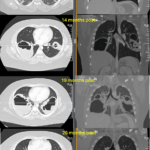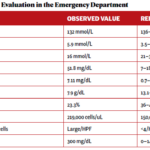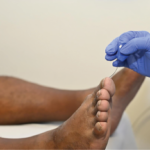For the 2024 Image Competition, the ACR sought images representing a diverse range of patients with educational or remarkable manifestations of pediatric rheumatic diseases, including autoimmune, inflammatory, infectious and malignant drivers of pediatric rheumatic disease. Here, we showcase the images selected as Best Overall. Cavitary Lung Nodules with Sinus & Skin Disease in Pediatric ANCA-Associated…









